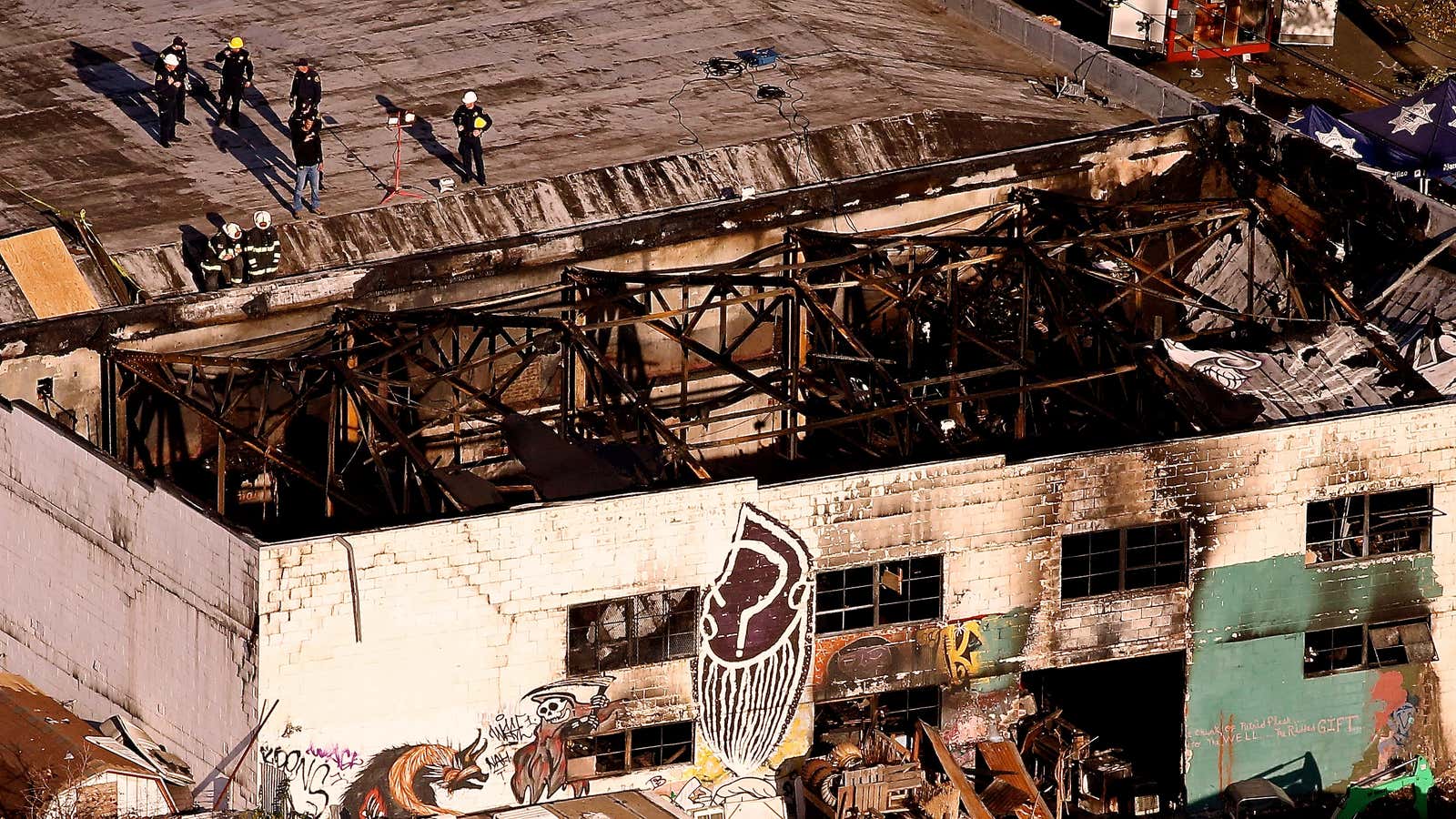Oakland, California is booming. Uber is building its headquarters there and Google is planning a local campus, and this enthusiasm has driven rents so high that alternative living is the only option for artists.
Life on the fringes is perilous, however. On Dec. 3, a fire killed 36 people during a party in a warehouse in Oakland. The space, known as the Ghost Ship, did double duty as a dwelling but wasn’t zoned for living or performances, and was being investigated by local housing authorities.
“It was a complete maze—I mean, there was really no clearly marked exits,” said Ben Phelps-Rohrs, who was attending the event and stepped out of the building just before the fire broke out. “It was a place where you could lose yourself,” he told local public radio KCRW.
A Ghost Ship resident who escaped the fire, Jose Avalos, paid $565 a month for room on the warehouse floor that was big enough for an RV, a workspace, loft bed and desk. He moved there for the low rent. “It’s extremely hard for artists,” Avalos told The Wall Street Journal. “Even if you’re not an artist, it’s impossible to find housing.”
According to Rent Jungle data, as of October 2016, the average monthly apartment rent in Oakland was $2,778. One bedrooms rent for $2,420 a month on average and two bedroom apartment rents average $3,075.
The warehouse’s owner, Chor Ng, through his daughter, Eva Ng, says he didn’t know that people were living there. But the leaseholder, Derick Ion Almena, has been open about residing in the 4,000 square foot space with his wife, three children, and other artists.
Almena appeared on the Today show on Dec. 6, contrite at first. ”I’m only here to say one thing: that I’m incredibly sorry and that everything that I did was to make this a stronger and more beautiful community and to bring people together.”
But when asked about criminal negligence charges he might face for the building conditions, Almena got angry and refused to address known dangers in the warehouse. ”I signed a lease and I got a building that was to city standards supposedly … I don’t want to talk about me. I don’t want to talk about profiting …This is not profit. This is a mass grave,” he said.
The city’s real estate prices are prohibitive for artists and Oakland’s mayor is aware of the problem. Last week, before the fire, Mayor Libby Schaaf released a statement about an arts grant event at a site near the Ghost Ship, scheduled for Dec. 5. She wrote, “these new initiatives and investments come at a critical time. Many Oakland arts and cultural organizations are at risk of displacement due to rising rents and a lack of long-term leases.”
The mayor, arts organizations, and experts had planned to talk about the economic impact of the tech boom on the art scene. But the event was canceled after the fire, and Mayor Schaaf, at a vigil honoring victims, was jeered as she reassured residents, “You will not be displaced in the place you call home.”
